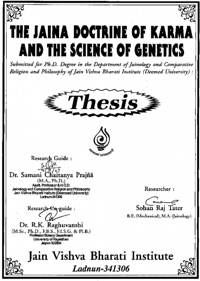Gregor Mendel showed that the characteristics of parents are passed on to offspring through genes. These genes might produce visible characteristics in offsprings, or might be carried for possible transmission to another generation. The children of one set of parents do not inherit all the same characteristics. The union of two productive cells, the egg from mother and the sperm from the father is the beginning of new individual. These two cells like all other carry with in them material that forms a definite number of chromosomes are pairs and each chromosome contain 1000 or so genes that also occur in pairs.
The process of inheritance is based upon the process in which the offsprings receives one of each gene pair from each parent. Some genes are dominant and some are recessive. An individual with dominant gene, for a particular characteristic displays that characteristic whether only one or both genes in the pair are dominant. If a gene is recessive, however, the characteristic associated with it does not show up unless both genes in the gene pair are recessive. In case only one gene in a pair is recessive, its effect will be marked by its dominant partner, but the recessive gene may still be passed on to the individual's offspring. Some characteristics are produced by a single gene or gene pair. Whereas multiple factor inheritance involves the action of several genes.
 Prof. Dr. Sohan Raj Tater
Prof. Dr. Sohan Raj Tater
 Doctoral Thesis, JVBU
Doctoral Thesis, JVBU